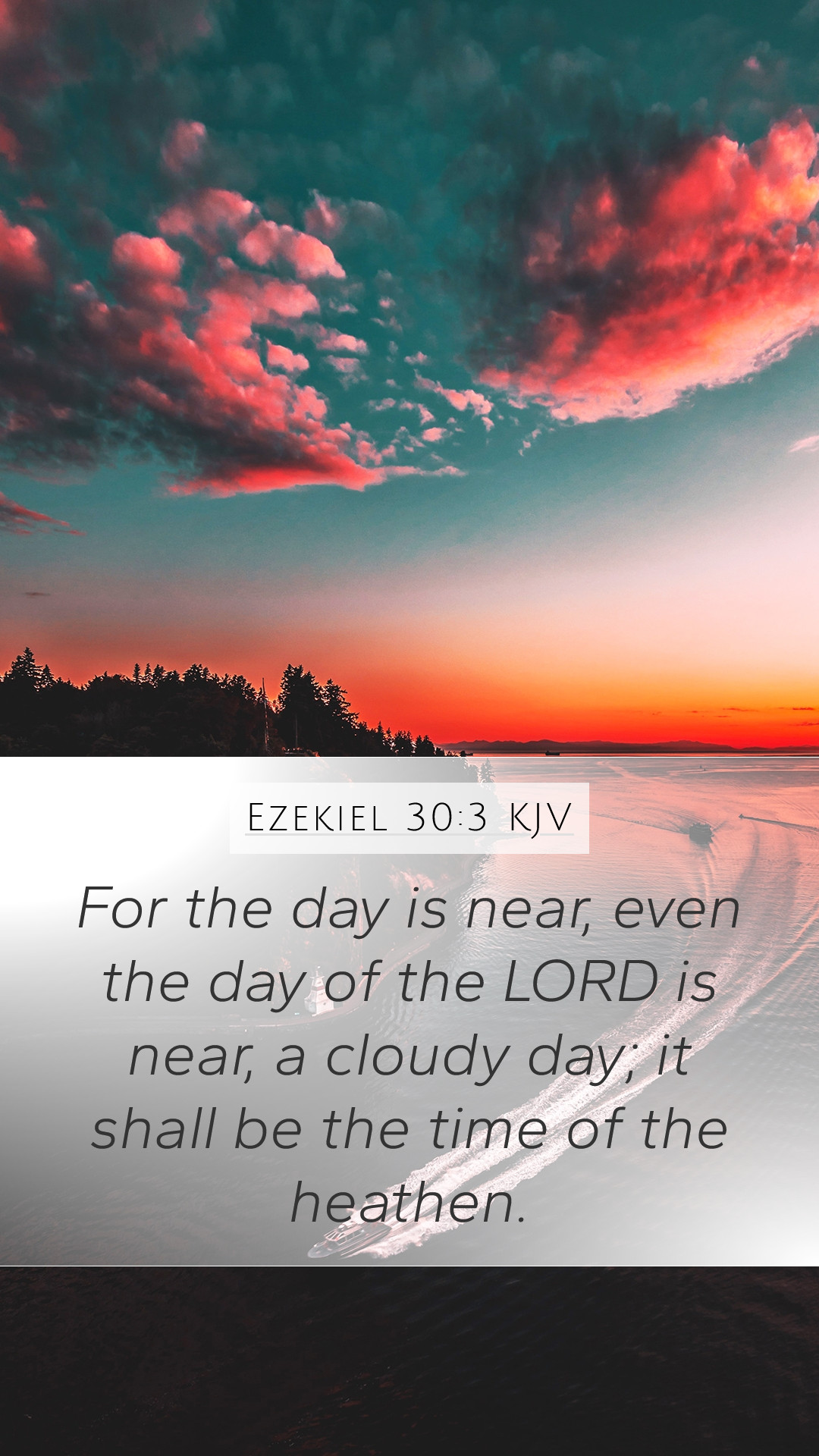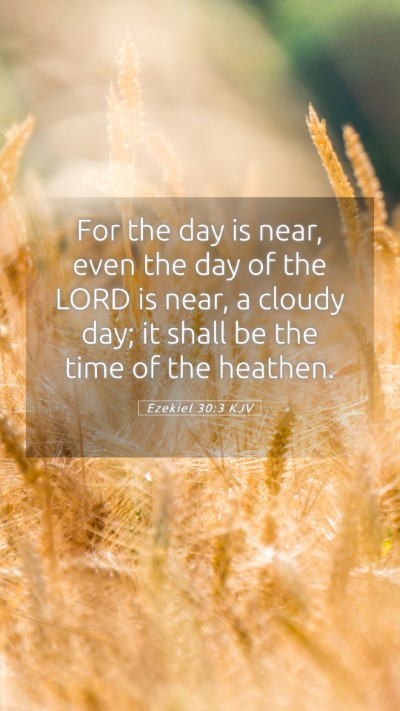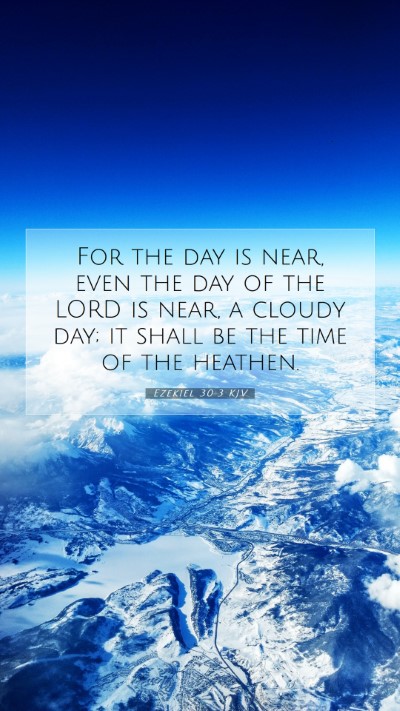Bible Verse Meaning and Commentary on Ezekiel 30:3
Ezekiel 30:3 states, "For the day is near, even the day of the Lord is near; a cloudy day; it shall be the time of the heathen." This verse, rich in meaning and significant in its context, plays a crucial role in understanding the overall message of the Book of Ezekiel, a prophetic text that addresses the impending judgment upon Egypt and other nations.
Overview of the Verse
The central theme in Ezekiel 30:3 revolves around the concept of the "day of the Lord," which signifies a time of judgment and intervention by God. This event is portrayed as ominous and is illustrated with the imagery of a "cloudy day," symbolizing uncertainty and the looming presence of divine wrath. The phrase "time of the heathen" signifies the judgment not only on Israel but also on the nations that do not follow the ways of God.
Insights from Public Domain Commentaries
-
Matthew Henry:
Matthew Henry emphasizes the inevitability of God’s judgment. He highlights that the "day of the Lord" is marked by distress and is impending upon nations that stray from righteousness. The prophetic warnings serve as a reminder to both Israel and surrounding nations that their actions have consequences.
-
Albert Barnes:
Albert Barnes notes the importance of recognizing the "cloudy day," which symbolizes the obscure and threatening nature of this judgment period. It reflects spiritual darkness and turmoil that will envelop the nations, causing despair among the people. The term "heathen" indicates those outside of divine grace who will face this period of reckoning.
-
Adam Clarke:
Adam Clarke elaborates on the significance of a "cloudy day," which suggests the presence of God’s wrath. He interprets the term "day of the Lord" as not just an event, but a period of divine activity where God’s judgment aligns with the moral decay of the nations. Clarke warns believers to remain vigilant and faithful amidst such prophecies.
Theological Significance
The "day of the Lord" is a pivotal theme in both the Old and New Testaments, often representing a time of divine intervention in human history. It serves as a call for self-examination and repentance. The underlying message remains relevant, urging believers to prepare for the realities of God's impending judgments, while also revealing the hope of restoration for those who turn back to Him.
Related Bible Cross References
- Joel 2:1 - "Blow ye the trumpet in Zion, and sound an alarm in my holy mountain..."
- Amos 5:18-20 - Speaks of the "day of the Lord" as a day of darkness, not light.
- Zebaniah 1:14-18 - Describes the coming of the great day of the Lord with fierce judgment.
Application in Daily Life
Understanding Ezekiel 30:3 encourages believers to apply the insights from this prophecy in their daily lives. It serves as a reminder of God's sovereignty and the inevitability of moral consequences for nations and individuals alike. The call is not just for fear but for repentance, urging a return toward divine principles. Believers are encouraged to engage in Bible study groups and utilize Bible study tools to deepen their insights into such warnings.
Conclusion
Ezekiel 30:3 is a powerful reminder of the judgment awaiting those who reject God’s ways. Through the inspired words of the prophet, believers are called to active faith and obedience. As we delve into Bible verse meanings and interpretations, may we grow in our understanding of Scripture and apply its truths diligently.


